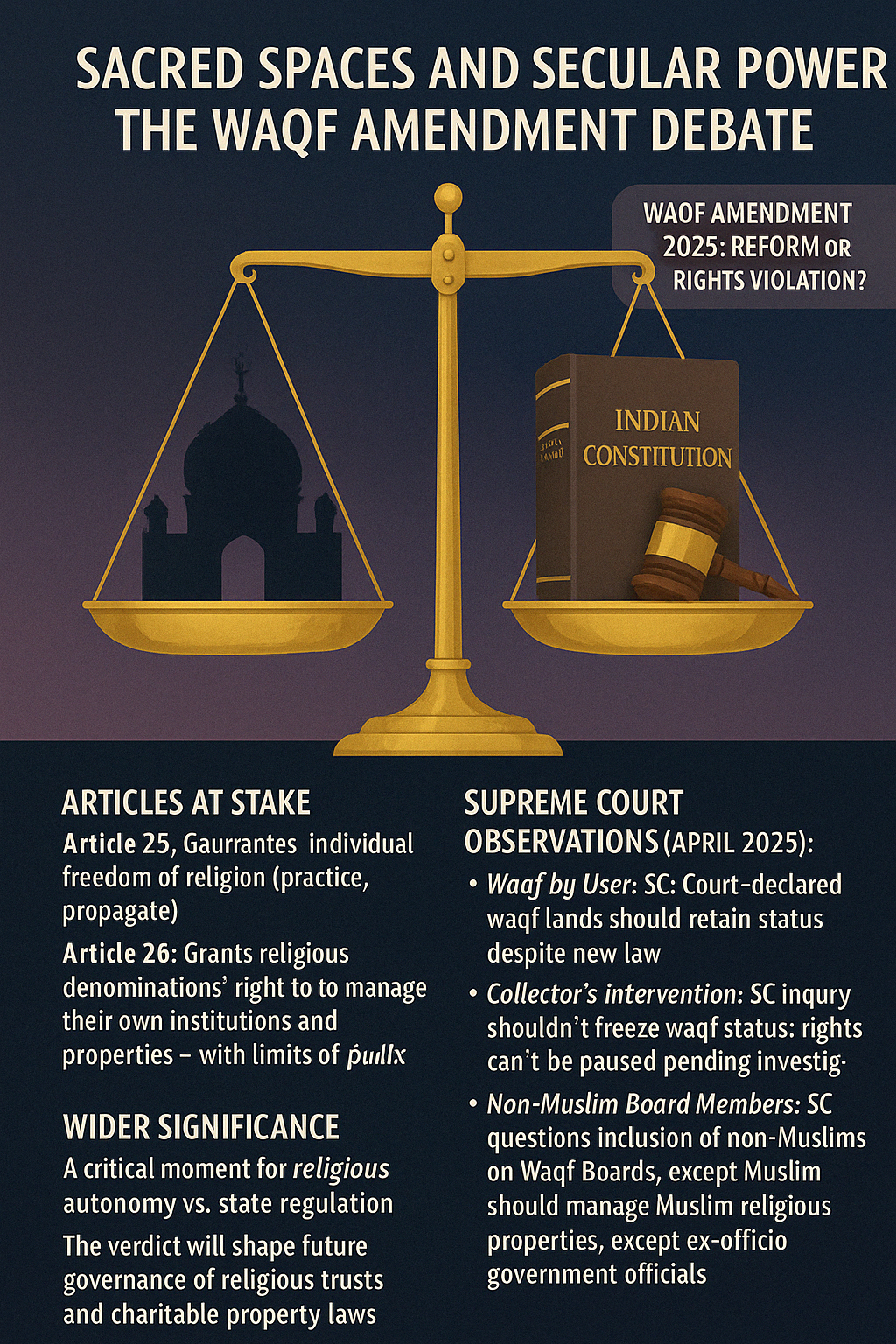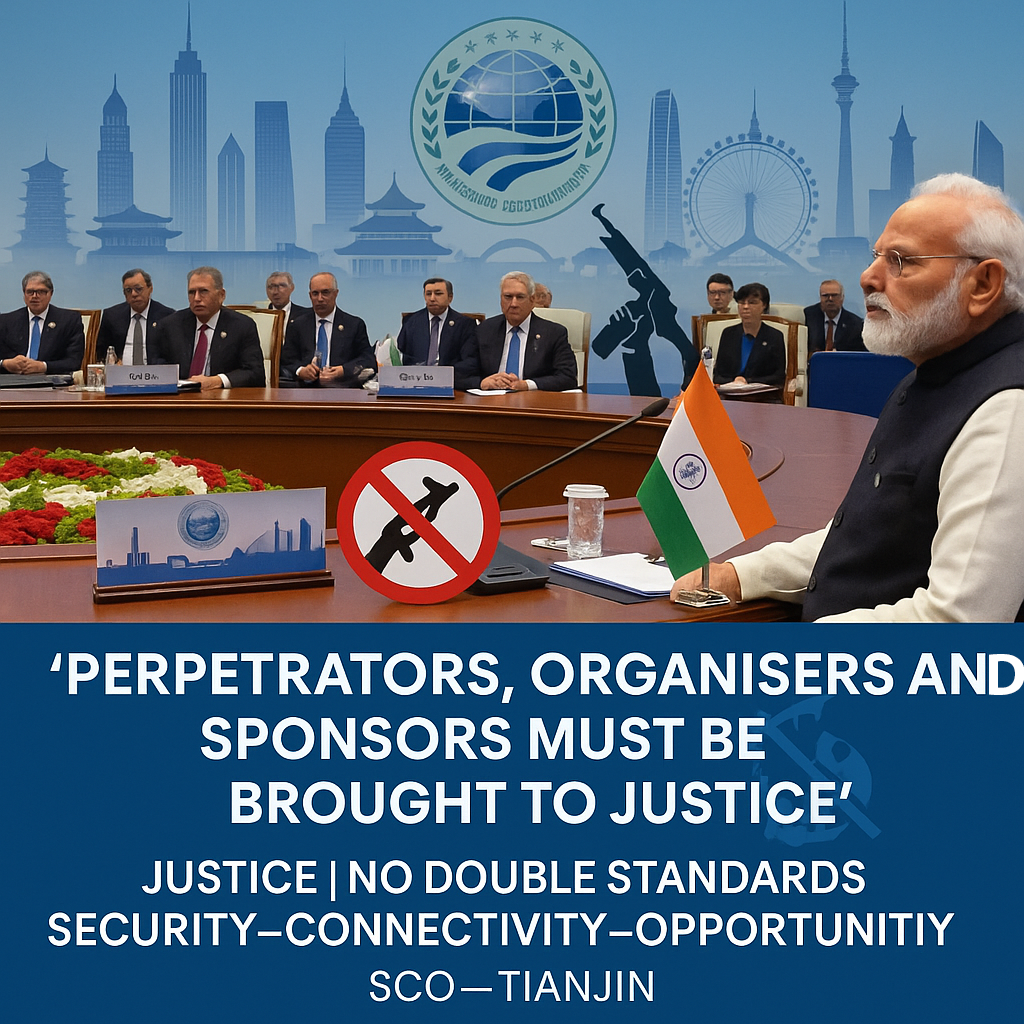
003- Apr 17, 2025
“Sacred Spaces and Secular Power: The Waqf Amendment Debate”

⚖️ Thematic Focus
Category: Indian Polity | Constitution | Religious Freedom
“Waqf Amendment 2025: Reform or Rights Violation?”
🧷 Key Highlights
- Legal Storm:
- Over 70 petitions filed challenging the Waqf (Amendment) Act, 2025.
- Core concern: Violation of Articles 25 & 26 of the Indian Constitution.
- Articles at Stake:
- Article 25: Guarantees individual freedom of religion (practice, propagate).
- Article 26: Grants religious denominations the right to manage their own institutions and properties — within limits of public order, health, morality.
- Key Changes in the Act:
- Amends Waqf Act, 1995 to centralize waqf property regulation.
- “Waqf by user” abolished — disputes arise over centuries-old practices.
- District collectors empowered to determine waqf status — raises questions on judicial bypass.
- Mandatory registration for all waqf properties — practical challenges for historical properties.
- Supreme Court Observations (April 2025):
- 🧾 Waqf by User:
- SC: Court-declared waqf lands should retain status despite new law.
- 🏛️ Collector’s Intervention:
- SC: Inquiry shouldn’t freeze waqf status; rights can’t be paused pending investigation.
- 👥 Non-Muslim Board Members:
- SC: Questioned inclusion of non-Muslims on Waqf Boards.
- Asserted: Only Muslims should manage Muslim religious properties, except ex-officio government officials.
- 🧾 Waqf by User:
- Wider Significance:
- A critical moment for religious autonomy vs state regulation.
- The verdict will shape future governance of religious trusts and charitable property laws.
🧠 Concept Explainer
What Is Waqf and Why Is It Controversial Now?
Waqf refers to charitable Islamic endowments, typically used for mosques, education, or social welfare. These properties are religiously protected. The 2025 Amendment shifts control mechanisms toward the state, raising alarms about the erosion of constitutional protections under Articles 25 & 26. At its core, the debate is about who gets to decide what is sacred.
📜 GS Paper Mapping
- GS Paper II: Indian Constitution – Fundamental Rights, Religious Freedom
- GS Paper II: Governance – Role of Judiciary & Religious Institutions
- GS Paper II: Secularism – Challenges in a pluralistic society
💭 A Thought Spark — by IAS Monk
“When law enters the sanctum, its steps must echo with care—for justice in a temple, mosque, or court is built not just on rules, but reverence.”


















